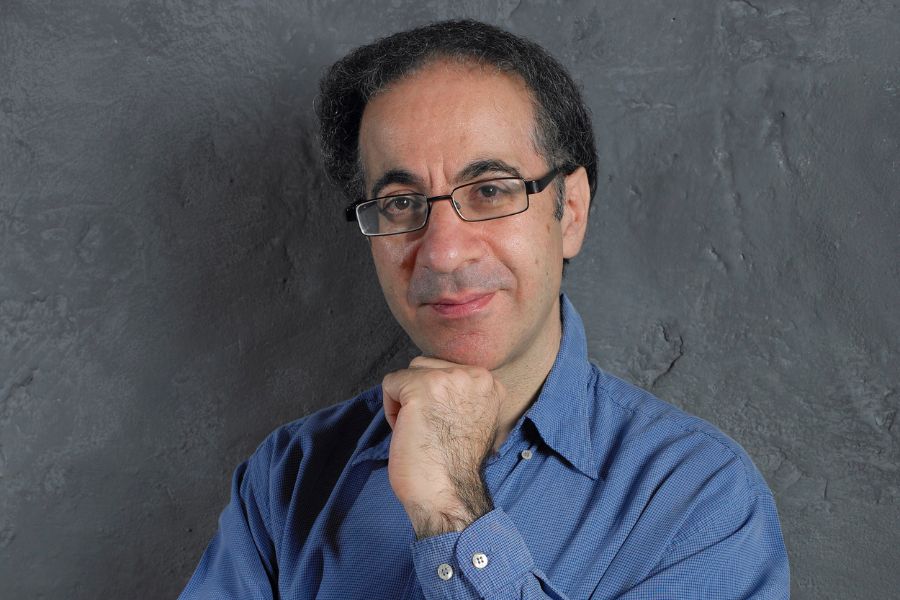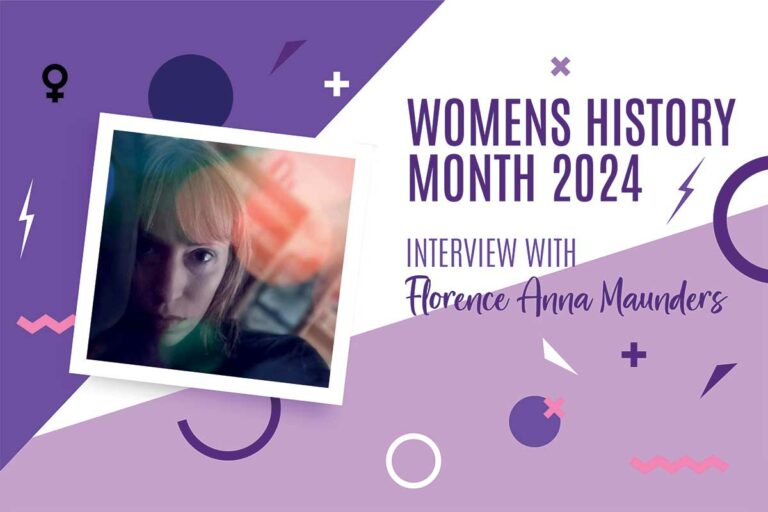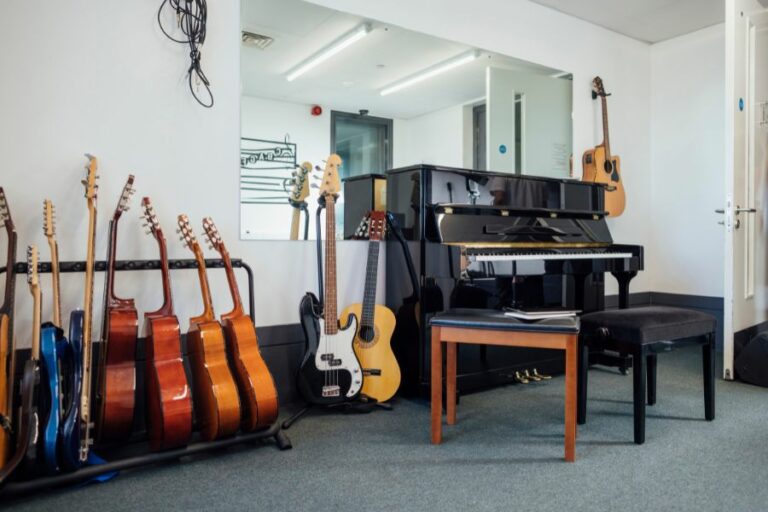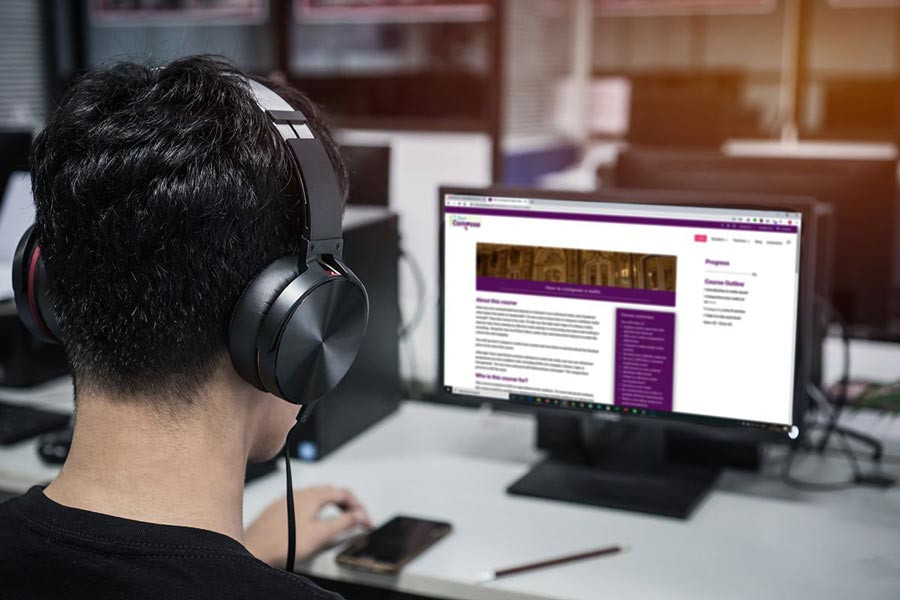Paul Harris is one of the UK’s leading music educationalists and author of over 600 publications. His latest book, Musical Doodles, published by Faber Music, and illustrated by Bill Jones, is described as “the secret to having fun with composition!” and takes an imaginative approach to creating music.
I got chatting to Paul about his life as a musician (in many guises!), his tips for composing and of course, his new book…
Tell us a bit about your musical journey…
It all began with a wonderful teacher – as it should! John Davies, who went on to teach me at the Royal Academy of Music, was also my first clarinet teacher at school. He was one of those truly inspirational teachers. During one lesson he said to me, as I was playing the next piece in my tutor book which happened to be the National Anthem, “there really ought to be a piece called ‘God Save Mr Davies’… I wonder who might write that?” Of course, I went home and wrote it – a little piece for clarinet and my first ever composition. I was about 10. I became hooked on writing pieces and by the time I entered the RAM had quite a drawer-full.
As well as studying the clarinet and piano, I had composition lessons with Timothy Baxter – a delightful man and a pupil himself of the South African composer Priaulx Rainier and Aaron Copland. My first publication was in fact a Clarinet Tutor – I was rather dismayed by the teaching material I found available when I began teaching and thought I could do better! I was amazed when Cambridge University Press actually decided to publish it. And since then, I’ve never stopped composing. Mostly for particular people or events or occasions. And a lot of what is curiously called ‘educational music’ – not a term I especially like. I prefer to think of it as seriously written music that is often used in education. I’ve also written a ballet, 7 or so concertos, a children’s opera and a fair amount of orchestral and chamber music. Below you can watch my Buckingham Concerto No 5 (for piano duet), a piece I am particularly proud of!
You have written over 600 publications within music education – what keeps you going, how do you stay motivated?
Happily, I just do! I hope, through my music, to bring a smile to someone’s face; to cheer them up; to make them think… to elicit some reaction. That potential reaction is what keeps me motivated. I’ve never felt the desire to write music just for the sake of it. My motivation is ultimately to help others find the huge pleasure that music can bring and which I have always enjoyed – and I hope to continue to do so for a long time still to come!
Your latest book ‘Musical Doodles’ is all about rediscovering a love for writing down music through musical doodling. Can you describe some of the activities included in the book?
Making up music is a very natural thing. Sometimes we whistle a tune when we’re feeling in a good mood, or hum to ourselves as we’re searching for something in the local supermarket. But over the years learning to make up music or compose, has become a complex undertaking. Composition books are often long and complicated and full of rules. Of course, if you wish to learn those rules that’s great. And as a result, you may be able to write some meaningful and sophisticated music. But it’s quite an intimidating and daunting journey that most probably won’t embark on. Many musicians I think would like to compose. So, in ‘Musical Doodles’ I have tried to create a journey that anyone can take. With just a little musical knowledge we can begin to write some music simply using what we already know. Without having to worry about rules we find we can actually start writing music. It’s really quite simple! And from little acorns…
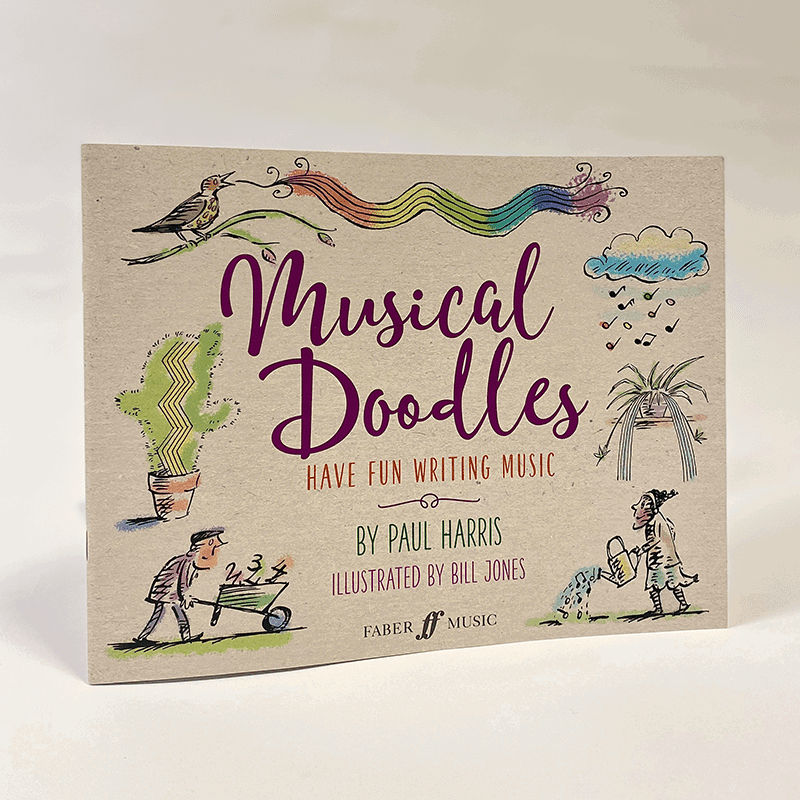
Read David Barton’s review of Musical Doodles by Paul Harris.
View sample pages from and purchase Musical Doodles from the Faber Music website.
Do students need to be able to read staff notation to get the most out of the book?
Some basic musical knowledge of notation – gained from playing an instrument for example, will certainly help. But if you don’t – you can still have a go!
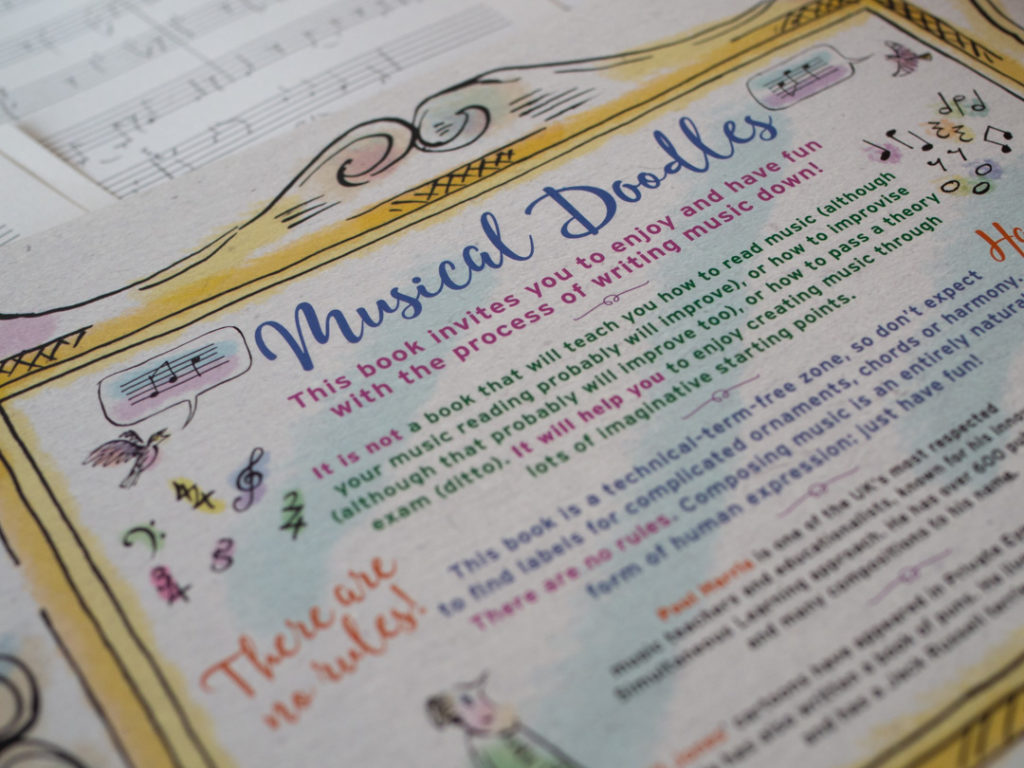
You have composed countless (much-loved) pieces for students, from piano sight-reading collections to books for woodwind, brass, strings and voice. How do you start a composition – what is your process?
Thank you! It’s a very practical process really. When writing teaching pieces, I begin with a list of musical and technical ‘ingredients’ which become the building blocks of the piece – it’s then a case of putting them together in a way that will be both effective as a means of delivering whatever the teaching/learning outcome has to be, and also in a way that creates music that is attractive and enjoyable to play and to listen to.
Do you use any particular notation software programme?
I’m quite a fan of Finale – but I have Sibelius too. I almost always start at the piano though. As a child I used to improvise a lot, especially exploring harmonies. I remember discovering the secondary seventh – a sound I love and which you’ll find inhabiting much of my music. My father didn’t get improvising; ‘do some proper practice’ was something I got rather too used to hearing!
As a first-study clarinettist how do you approach composing for an instrument you don’t play yourself?
I learned to play the piano, and the violin as well at school (I managed to get Grade 8 violin …merit!). So that gives me quite an insight into string instruments. When I recently wrote Improve Your Sight Reading! for Guitar a friend lent me one and I worked it all out on the instrument. Otherwise, I read about and take lots of advice from friends who play the instruments I write for but don’t play myself.
Which composers do you most admire / are inspired by?
I love French music – Francis Poulenc especially: I would have liked to have met him. His music is so charming, warm and witty – I often wonder if the man was like the music. Also Ravel. I love the music of Malcolm Arnold and Richard Rodney Bennett – two wonderful English composers of the 20th century whose music has had a great impact on me. Also Brahms – I love analysing Brahms – seeing the way his music unfolds is a great inspiration. And there are a great many others! I could go on and on in answer to this question!!
You’re a very busy person – how do you wind down and relax?
Hmmm… I hope I’m a fairly wound-down and relaxed sort of person as a default position! I love my work and as such spend a lot of time ‘musicking’ to use a term I rather like. Long walks and chatting with friends are always pleasures.
Can you share a top tip for students getting started with composing?
Write what you like. Don’t worry too much about rules at the start – you can assimilate those later if you want to! And remember it’s very problematic to label music good or bad. Such judgements are not very meaningful. Music just needs to be effective; to be powerful and understandable – to communicate comprehensibly beyond the capacity of words. Write what you like, write confidently and be proud of what you wish to say.

About Paul Harris
Paul Harris is one of the UK’s most influential music educationalists. He studied the clarinet at the Royal Academy of Music, where he won the August Manns Prize for outstanding performance in clarinet playing
and where he now teaches. He is in great demand as a teacher, composer, and writer (he has written over 600 books); and his inspirational masterclasses and workshops continue to influence thousands of young
musicians and teachers all over the world in both the principles and practice of musical performance and education.
@PaulHarris_Cl (Twitter)
@PaulHarrisTeaching (Facebook)
@PaulHarrisComposer (Instagram)
